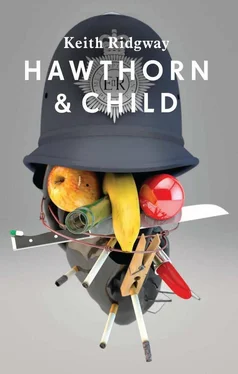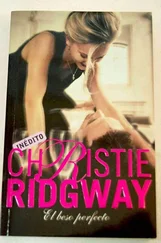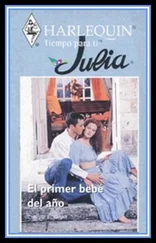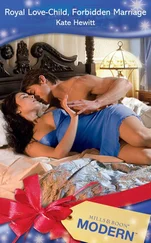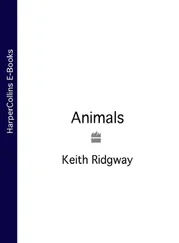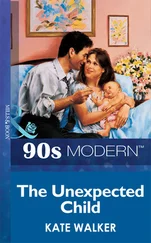— That’s it?
The car hesitated and then turned north, away from the camera, its rear lights like pinprick stars that faded as soon as he looked at them. He wasn’t sure that they weren’t just reflections.
— Yeah. They can zoom in on it.
— Can you?
— No. I don’t have the gear.
They watched it a few times. Hawthorn squinted. He tried looking slightly to the side, to catch it out of the corner of his eye. He tried to stare at it directly. He tried to pretend he didn’t know it was coming. But every time he saw it, it looked like nothing. It was formless. He could imagine it into any shape he thought of. He could make it disappear by imagining that it wasn’t there at all — that he didn’t see it. The road was empty and was not a road. He found himself looking at the smudged screen.
— Thank you, Frank.
The city fell apart into silence and darkness and cold, and Hawthorn took a bus to Finsbury Park and then walked up to Crouch End and ate pasta in the Italian place by the green. It was quiet. He tried to take his time. He tried to wait before each mouthful. He couldn’t decide what to think about.
He called his brother. They talked about the weekend. They talked about their father. They talked about Tess’s new computer. Hawthorn asked his brother what he knew about vintage cars.
— What kind of vintage?
— Pre-war. 1930s I think.
— What about them?
— Do you see many?
— Nah, I don’t think so. If there’s an event maybe. The London to Brighton, you see them then. There’s a restored nineteen forty something cab I see around. I don’t know the cabbie. I used to have a regular fare from Chelsea to Ealing, was a vintage car dealer I think. Driving ban. Why?
— Ealing?
— Yeah. Ealing. Why?
— Case.
— Theft?
— No, not really. I’ll tell you about it at the weekend.
— You all right?
— Yeah, I’m fine.
He was on his second coffee. They were starting to close up.
— How’s the thing?
— What thing?
— The crying.
Hawthorn made a face and looked out of the window.
— It’s fine. Do you remember the models? Dad’s models? Soldiers and cars and that?
— Yeah, I do. I remember the soldiers. Lead things. Painted. They were Granddad’s, I think. Haven’t seen them in years.
— There used to be cars too. Heavy. Solid. Were they lead?
— Lead paint. Cast iron. Probably be worth something now. Did you not get into trouble about them?
— Yeah. I broke a few. I used to crash them together. Chipped them. Knocked wheels off and that.
— Violent little tyke, you were. You get a thrashing?
— No, I got a talk.
— Ah. A talk.
— I still remember it. Made me feel like a bastard.
— Which you were.
— Which I was.
— We should ask him about them. You going to come over on Saturday?
— Yeah, that’s the plan.
— All right. Tess says love, and the kids.
— Love back.
In the roads on the hill he looked at the city lights and the airplanes circling over south London like a lid closing on a jar. He stamped to keep his feet warm and tried to get lost. He took a bus to Muswell Hill and took a bus back again. He had another coffee in a tiny Turkish place and pretended to talk about football. He sent text messages that were vague. He thought about various people. He sat on a bench in Highgate with a view over everything and let himself cry a little. It wasn’t so bad. It stopped after about ten minutes. He wondered why he didn’t want to go home. It was not far. He could go home and have a shower.
He kept walking. He drank more coffee in an all-night McDonald’s. He dozed off for a while. By the time the staff woke him up he was almost late. He started walking back towards Finsbury Park.
He stood outside the house on Nestor Lane. There was silence. The night was dark and the street lamps were like hoods. He looked up at the windows. He expected to see Walter Andone looking back at him, his face against the glass. Then he expected to see Walter Andone’s silhouette. Reaching out to him. The windows were all curtained. The upstairs ones seemed frosted with condensation. The date sat in the corner of his eye, on the right, like a time stamp in a photograph. The house did not look that old. It did not look like shelter. It did not look like a place where you might go to be warm, to sleep, to sit with loved ones and retreat from the day and from the city. It looked like something you would grit your teeth to enter. It looked like all the city surrounded it as an antechamber, a place to rest, and it was the building that contained all the work and the toil and the pain of things.
He walked. He walked with his hands in his pockets. He pretended that there was nothing in his mind.
Things come out of the past.
They had taken down the tape on Hampley Road and it was open to traffic. There was no traffic. There were incident boards. Shooting. Witnesses. Serious injury. Please call . He looked up towards Plume Road and paused. Cars in the distance sounded like other things, natural things. Waves on water. The wind in leaves. He walked along the path and listened to his footsteps.
He came to Daniel Field’s blood, dried on the path like old chewing gum. There was a discarded swab stick in the gutter. At the foot of the wall lay the yellow marker, fallen from the place where the stray bullet had struck. He stared at the silver shutter. It was dull in the gloom. It was cold. He looked at his watch and retraced his steps a little. Then he pretended he was Daniel Field and walked as if on his way to the tube station. He imagined he was carrying a shoulder bag. His head naturally turned towards the ground. He looked at the little bit of London at his feet, at the smudges and marks, the scuffs and scratches, the tiny scraps of paper stuck to the stone. Tiredness allowed everything to flow into everything else. There was nothing distinct. A head full of condensation. He moved over the black marks of dropped liquids, cigarettes, spit, blood, dog shit, pollen and rain. In a thousand years this would all be buried. He halted at the stain. He heard a car come up behind him.
He didn’t turn. He looked ahead. The car edged into his field of vision, slowly and smoothly, its wheels turning in the corner of his eye like a thought. It was dark. A dark car. But it was not black. There were no running boards. There were no silver handles.
— Detective. Hello there. Detective?
Hawthorn turned. He looked back up Hampley Road. It was empty. He looked towards Plume Road. Then he looked down at the car in front of him. He had to drop to his haunches to talk to the driver.
— Hello, Mr Jetters.
— How is he? Daniel, I mean.
— He’s good. He’ll be fine. He’s expected to make a full recovery.
Jetters turned briefly and looked ahead. He smiled.
— That is great. That is great to hear.
— His mother, said Hawthorn. She asked if she could contact you. Do you mind if I give her your details?
— No, no. Not at all. I’d quite like to visit him I think.
Hawthorn nodded.
— And have you caught anyone?
— Arrests have been made. Can’t say too much about that.
— Of course. Well. That’s all very good news.
— Yeah. Yeah it is.
— What has you out here then?
Hawthorn shrugged.
— It would be good to have another witness. Someone who might walk this way in the mornings. That kind of thing.
Jetters nodded. He wished Hawthorn luck. He drove to Plume Road and turned left.
Hawthorn stood at the corner of Hampley Road and Plume Road, beside one of the incident boards. It was five minutes or more before anyone appeared. He showed his ID card. Then he showed the pictures. The pictures of the cars.
Читать дальше
